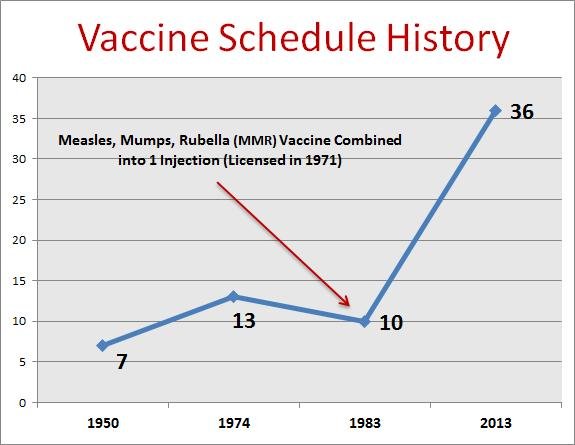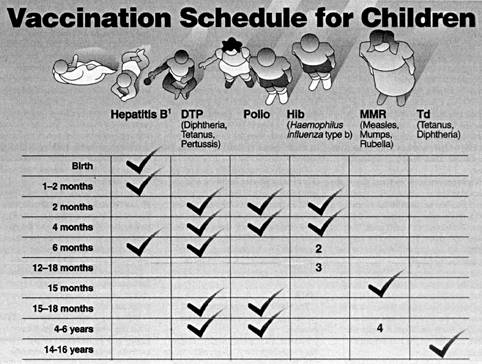Could'a Should'a Would'a looked back with 20/20 at the WHAT IFs...

How many ideas people discuss do we rush to the worst case scenarios as justification for why something shouldn't be done? We rush to the MIGHT HAPPEN cases and we kill an idea, or stall discussion about it over WHAT MIGHT BE. Looking at this those WHAT IFs can be extremely remote or a very small segment of people in the whole scope of the concept. We might kill an idea that could help 99% of the people due to a MIGHT HAPPEN for 1%. The end result in this quest for the non-existent 100% idea is we usually end up with ideas that don't help close to even 99% of the people.
Some people are intelligent and pay attention while also being very happy with this situation. They can use the fear what MIGHT HAPPEN to sway politics and laws in certain ways. They can use this ability that only the government has to force ideas through that are to their benefit. If their idea benefits them but harms many others they can keep an eye open for people rising who challenge their idea. When these naysayers arise all they have to do is bring out the fearful MIGHT HAPPEN arguments.
The odd thing is that in our fear of what MIGHT HAPPEN often the solution we embrace due to our fear harms more people than the MIGHT HAPPEN that we were afraid of.
Here are some modern examples that are being harmful and exist in their current state largely to fear of WHAT IFS.
"Higher" Education
Education: There was a time many people could not afford higher education. If you were wealthy you could afford it, but that doesn't mean you were guaranteed acceptance. Higher education also had rigorous screening processes that people would go through to get accepted. They also offered scholarships to people that seemed to show a lot of potential that may or may not be able to afford to pay the tuition. During this time the text books and materials were largely as any other free market product. You could find competition, and the schools were very happy to sell used materials as decently priced used fees.
There were some people that could not attend to higher education simply due to their economic situation, and not getting a scholarship or other funding. You also were not guaranteed you could get a loan based upon the idea you MIGHT get a degree. So there were some people that would benefit from higher education that did not get to experience it.
Higher education in this environment was also very competitive and schools competed against each other. The better a school/university did at preparing its students the more in demand it became and the more people would apply for its screening processes. This encouraged schools/universities to do their best to try to push the bar and produce the best alumni.
The WHAT IF, MIGHT HAPPEN that was used to manipulate education is the concept that EVERYONE deserves higher education, even those who through their own choices, etc are not well suited for it. Not everyone is a good fit for higher education. It does not fit within their interests. Yet WHAT IF they were suited and just couldn't afford it? Shouldn't they be able to get a loan?
Enter the government to save the day. Why not guarantee student loans? That should deal with that WHAT IF, and MIGHT HAPPEN scenario.
Now as time passes tons of universities and schools pop up to offer schooling to anyone... You didn't pass the screening for the other universities... no problem you have government guaranteed funding... that is a business opportunity. We'll create a university for you. You don't want to do really hard things, but you want a degree. No problem, your tuition is covered we got you.
Hmmm..... tuition is guaranteed why not charge more for books too? Especially if they have to purchase them...
Let's stop selling used books. In fact these books are now so expensive we need to encourage the author to release a new edition each year so we can keep forcing people to change them even if it is only some very minor revisions.
We can keep raising our prices too. So now you are GUARANTEED you can go to "higher education" that may not actually be "higher" anything and when you graduate with that piece of paper the only two things that are certain is that you likely SPENT A LOT OF MONEY, and possibly put in a lot of time. That last is not 100% guaranteed. Though there is an increasing flood of people with degrees that are not particularly skilled at what their degree is in. I call these people "Paper Tigers" for they look really fierce on paper and in a resume.
Yet, is the world a better place? I say in terms of education not at all... it is worse. It also has resulted in people being stuck with huge loan debts they need to pay off for the rest of their life and their education may be so worthless that they can't get employment that will help them pay it off. This is actually FAR worse than the scenario it was attempting to address. Inspired by the fears of WHAT IF, and MIGHT HAPPEN.
"Affordable" Health Care
There was a point in healthcare where how you paid was decided between you and the person that provided the healthcare. The only costs out of those decisions might be from the cost of tools, and or prescriptions needed.
For the most part people could get the regular healthcare. The WHAT IF, and MIGHT HAPPEN that has plagued the healthcare industry is "What if something truly bad happens?" as they knew such care would be very expensive and not everyone could afford it. SOME people might not get the help at all. Some people could DIE simply because they could not afford the treatment.
Insurance rushed in to fill this void. WHAT IF we could create an entity that everyone pays a certain amount every month or year and we pool this money. In the event of something catastrophic we pay from these funds. This way we can protect those people who might have died simply due to not being able to afford it in those rare bad events. That's the concept they suck us in with.
Yet those insurance agencies pay employees to push paper around, and to get people to sign up. They pay an increasingly better and better wage too. How is this wage paid? Out of that pool. How are the wages increased and share value in these companies increased? Maximize income vs expenditure. What is income? What the clients pay for insurance. What is expenditure? How much is paid out to the medical clients.
So income can be increased by raising prices, getting more clients, or both of those.
Expenditure can be decreased by discouraging use of the service, negotiation with the medical industry to guarantee lower prices, or both.
That there is actually a NORMAL business model. People could still choose not to do that and it didn't have to have a negative impact on medical industry or pharmaceutical prices.
Until... the government stepped in and started making guarantees. People usually don't realize there is no FREE. The government does not produce a marketable good that it makes a profit from. They take their money that they pay for things for from you. If they print more money out of thin air they are still taking money from you by devaluing your currency.
As with the education situation as soon as that guarantee is in place those people seeking to maximize income, and minimize expenditures begin seeing opportunities. If something is guaranteed by the government then they can begin raising prices. They may also be able to work with other entities for kick backs to make sure other areas increase.
Guarantees remove the FREE MARKET aspect of the economy. They damage the competition and the drive to retain customers and gain new customers by providing a better service/product. The guarantee removes that from the situation.
Since such programs were implemented and have continued to be implemented there is a big smoke screen on what it has done. It is actually more difficult for many people to get medical treatment than it was before. After paying monthly premiums they likely have no money for co-payments, deductibles, or the fact their medical bill likely only covers 80% at best of the medical bill. So in the end going to the doctor and getting helped is likely a far more expensive situation than when insurance came in to the picture as a WHAT IF, MIGHT HAPPEN hedge.
It was really the GUARANTEE and the GOVERNMENT jumping into the fray that made this go insane. This has also had a huge impact on the price and profitability of pharmaceuticals.
Has it made things better? In my life I say NO. It is far worse, just like the education system.
Vaccines
With that title do you suddenly have the urge to stop reading? Have you ever wondered about that conditioning? People will often run from that word without even listening. They have bought into the false dichotomy that you are either pro-vaccine, or anti-vaccine and any negative talk and you are labeled an "anti-vaxxer".
This is a false dichotomy because there are more than two choices. Some people speaking against vaccines (actually a large amount of them) are not anti-vaccine. They know the real scientific and historical value that vaccines represent.
They are against the concept of collateral damage, and acceptable loses. They believe that everything should be done to make sure these acceptable loses due to negative reactions are continually researched and reduced.
They believe that the vaccine itself and its purpose may have value, but that doesn't make all of the other ingredients included in that process safe for use. They are Pro-vaccine, but also Pro making vaccines safer.
The issue here again comes from within the government. There was a time where the required vaccines were few in number and were limited to those that were extremely dangerous and contagious.
The government stepped in and made it illegal to sue vaccine manufacturers for negative events related to vaccines. This occurred in 1986. Since that time the amount of vaccines has exploded. Why wouldn't they? They no longer have to worry about safety or the consequences of pushing something out too fast. Furthermore, they can minimize expenditures as they can keep using ingredients that are proven to be harmful as they cannot be held accountable.
Simple math can show you how this would be bad. Let's say that a vaccine has 0.1 units of something bad that we should have found an alternative ingredient for.
Let's say you had 4 required vaccines. That could in worst case end up with 0.4 units of that bad substance in your body.
Now let's enter the current age where pregnant mothers and newborns are given 50+ vaccines even for things such as Hepatitis B which can only be spread by sexual activity, or sharing a needle... That is 5.0 units of the bad things.
Yet, there is no accountability and this does maximize profits for the share holders for the pharmaceutical companies. Their vaccines are increasingly becoming mandatory and LARGE in number, while their responsibility for the negative events is virtually non-existent.
Simple math shows the problem there. It has nothing to do with Pro-vax, anti-vax. It has to do with greed, corruption, and common sense. Common Sense says that we should use vaccines for things we are likely to encounter at an appropriate age, and under appropriate circumstances. Common Sense says that if an ingredient in the vaccine is NOT related to the disease or virus itself and it is an ingredient that is proven harmful/toxic to people that such an ingredient should be replaced with some alternative. Yet this does cost money which translates to an expenditure for the big pharmaceutical company. Why should they add to expenditures when their products are guaranteed to be purchased, and they cannot be held accountable for negative outcomes? Adding to expenditures when they don't have to reduces profit, and the shareholders will be pissed off. So why would they?
Marketing to Doctors: Last Week Tonight with John Oliver(HBO)
You can think people are GOOD and they would do the GOOD thing... That's one of the problems with treating corporations like people.
Corporations as People
When corporations were given the rights of people, and same protections under the Constitution we created a huge monster.
Originally corporations existed for one purpose. They were created so multiple people could pool their money together to undertake a large project. These large projects would have a purpose in mind that would have an ending, and a completion point. Much like declaring war back then would have a mandate for what victory is and thus a clearly defined end point.
Corporations might exist long enough to build a coliseum, or a bridge, or similar big project. The people that built it would have a way to recoup their investment with some bonuses, but it was not infinite.
That changed...
Corporations became what they are today where shareholders own shares in a company, and they are likely paid dividends. The more profitable the corporation is the better the dividends.
We the people... can be naive an view a corporation as though it is small and down in the trenches like us. We treat it like a fellow ant, when in fact they are like the giant walking past the ant and not even knowing we are there.
We also gave it the rights of people...
Let's talk about people for a moment...
We need to eat, we need shelter, we need social interaction, and we have a biological drive to procreate.
Let's talk about corporations...
They need to maximize profit.
Those NEEDS are very different. Those drives are very different. A corporation should NOT be treated like a person. It may be owned by people who collect the dividends, but they can be far removed and focus simply on whether they are receiving smaller or larger dividends from the corporation. They don't necessarily need to worry about HOW that is being achieved. They typically will only step in and complain when the dividends decrease. If the dividends increase they are happy, and even joyful.

So why would an education, insurance, or pharmaceutical corporations stop to think about whether what it is doing is actually helping or not when their actions are steadily increasing dividends and to actually ask those questions and react to them would likely decrease dividends?
The Corporation - Full Movie - VERY GOOD - but long... Worth seeing at least once






I just made a post about Jordan Maxwell. Check it out. Did you know each American citizen is a corporation? Watch the video on my post to see! https://steemit.com/life/@notoriousdjp/jordan-maxwell-the-red-piller-of-red-pillers
Yeah I was familiar with how they kind of hijacked things by converting people into corporate ASSETS. It actually only occurs once you sign documents that tie you into it, but pretty much all of us have signed such documents. Social Security cards, etc.
It happens from our parents signing the birth certificate.
They actually have other avenues too so the can incorporate people that are already born, such as immigration, etc.
I'm sure they do. 😉 They think the goyim don't know but we do. I'm so close to becoming a sovereign citizen.
If you had any idea how much the title of this post relates to my last post...
I had a little fun coming up with that title. :) I'll go check out your post.
You make the point that too much state influence made the prices for education and health care rise.
But isn't the reality a different one? Lobbyism and profiteering was it that rised the prices.
In "communistic" Germany it is easy possible to have health care for everyone with prices comparable to US - but we include everyone with lower additional pay. No bankruptcy because of cancer.
Same for university: Fees, if existent, are low. And average quality is not much different to US. Quite some people say it's better. Of course in the last years numbers of students have risen while money was slashed. That did not help.
No lobbying only gets them to PASS the laws in the first place. Once the guarantees are in place that removes competition from FREE MARKET and then it is just a feeding frenzy to see who can get at the guaranteed PAY OUT.
Isn't that market in purest form? There is a price to get and the best one gets it.
Nope. Government involvement makes it no longer a market in it's purest form. Government + Market = path to cronyism.
Market - Government = Monopolism
Incorrect, though a common mistake.
Monopolies can only exist for very long for two reasons:
If the company and the product are so good that no one bothers to look for ways to compete with them, or offer a similar service. This type of monopoly people don't tend to pay attention to or have a problem with. Nothing to complain about = not much opportunity to compete. They are not super common, but they have existed.
Government backed. A government is required to keep a long term monopoly. Via laws they can make things easier for some, and more difficult for others. Those who make the RULES control the game. That's what governments do. They force rules upon the people. They can pass something to block potential competitors. They can pass laws to ease the way for specific locations. These types of monopolies are ALL over the United States. This is very common with power and utility companies. They are given territories and other companies are RESTRICTED from operating in them. We'll hear someone bitch about their electric company and say they are going to go find another one and we'll just laugh at their ignorance. Depending upon where you are at you only have ONE power company and that restriction is in place by government mandate and there ARE companies that would gladly compete with them, but are restricted from doing so. It also stops the regional power companies from poaching on the territories of other regional power companies. This is but one example of monopolies that could not exist without the government.
You would be hard pressed at finding a monopoly that is not of type #1 that does not manage to stay in power as a monopoly without the assistance of the government. I haven't been able to find any.
Now you can if you focus on a short period of time... as there is actually a 3rd type of monopoly...
I do want to add that I do believe part of why this is a common mistake is that when it gets REALLY bad and the public super mad it is usually the Government that rushes in and gets to act the hero, and the public is unaware that the only reason it existed for as long as it did and got to be the way it was in the first place was with government backing.
A Free Market would leave windows of opportunity to compete. Whether it is treating employees better, paying a better wage, offering better service, offering a higher quality product, better marketing, etc.
There are plenty of historical monopolies but any of them I've dug into there is a spectre of the government involved in their history that made their creation possible and even aided.
If you can find specific examples where this is not the case I'd like to know so I can go research them as I haven't been able to find any.
Read the first few paragraphs of the article again. You are illustrating my point.